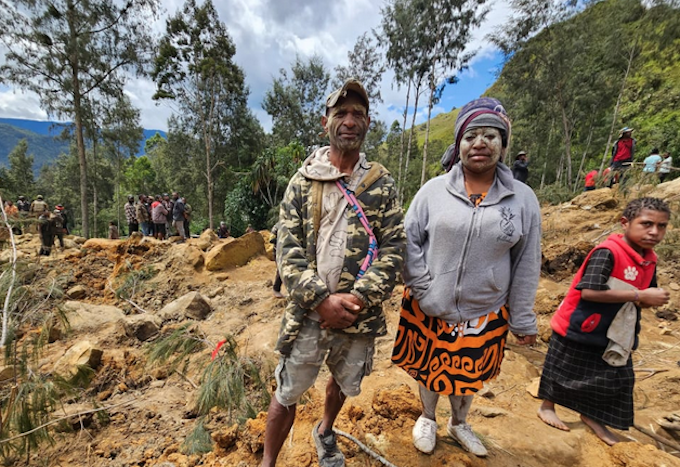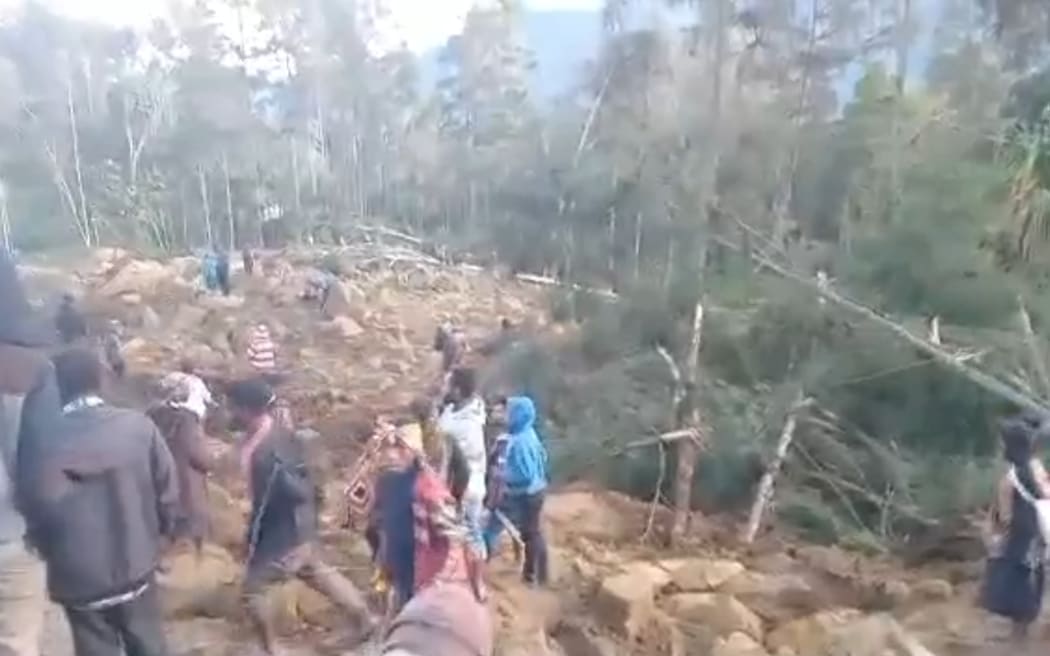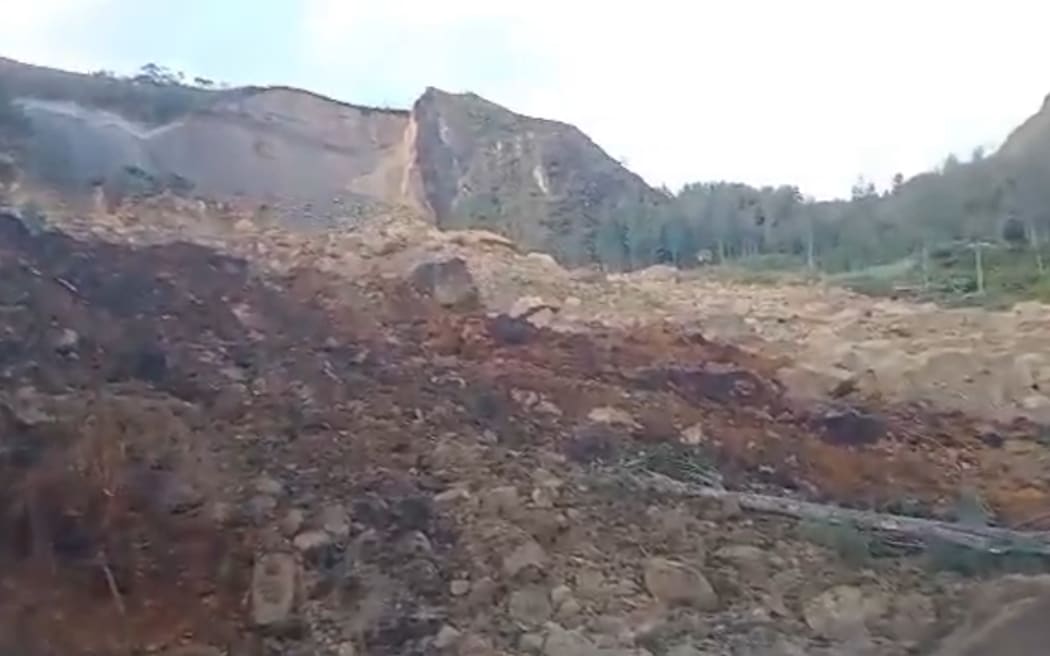
By Scott Waide, RNZ Pacific PNG correspondent
Amidst the despair of the Kaolokam landslide disaster in the Enga Province of Papua New Guinea, there was a tiny glimmer of hope as villagers pulled out a husband and wife who had been trapped under the rubble.
Johnson and Jaqueline Yandam’s home missed the brunt of the landslide, but still got covered by massive rocks.
They told public broadcaster NBC journalist Emmanuel Eralia that they had both accepted that they were going to die together.
- READ MORE: PNG landslide: Survivors of highlands disaster desperately seeking help
- Hundreds feared dead after huge landslide in Papua New Guinea
- Local officials fear fate of 300 missing people in remote PNG landslide
- Other Engan landslide reports
“Large rocks that fell on their house created a barrier that prevented additional debris from harming them. They would have died of hunger and thirst if they had not been found,” Eralia told RNZ Pacific.
It was only after the noise had stopped that they began calling out. The Yandams have three children. All three were not at Kaolokam when the disaster struck.
Hundreds of people from nearby villages have come to help where they can. In a country where the disaster response is largely adhoc, the first responders are almost always relatives of those affected.
After four days, the remains of only a handful of people have been found — including the partial remains of a 25-year-old man who has been identified by his extended family members.
At least 500 are feared to be buried under the rubble, but a UN migration agency mission in Papua New Guinea has revised the estimate to 690 deaths based on the number of homes buried.
The Enga provincial government has delivered relief supplies to those affected by the landslide.
The National Disaster and Emergency Service has allocated funds for the recovery efforts.
Sketchy information
Getting an understanding of the true scale of the Kaolokam landslide disaster in the first 12 hours was difficult.
The first snippets of video posted on Facebook showed people walking on rubble with a commentary in the local Enga language.
Women could be heard weeping in the background as men tried to dig through the mud and rocks.
Those who were closest to the disaster, traumatised by the tragedy, gave estimates of the number of the dead. Eventually threads of a story emerged.
“We took a man injured in the landside to Wabag Hospital. As far as I know, only four bodies have been recovered. Those are the ones I saw,” Larsen Lakari said.
It had been raining the previous night. Larsen’s house was about 100m from the landslip.
“Pieces of earth had started to come loose. But we didn’t imagine that the whole mountain would break and fall onto the village.”
In the first few hours, villagers counted at least 300 men, women and children who were unaccounted for.
But that figure has gradually increased to more than 500. This was a whole clan, buried in one landslide.

Tribal conflict and a disaster
Managing Enga is an enormous challenge for the provincial administration. It has been a tumultuous year marked by both human and natural disasters.
In February, 50 people were killed during a tribal clash in the Wapenamanda District.
The violence was exacerbated by the proliferation of illegal firearms, turning disputes deadly and highlighting the challenges of maintaining peace in the region.
The massacre, described as one of the worst in recent history, prompted calls for a state of emergency and stricter gun control measures.

‘People still buried’
A community leader from in the area, Mick Michael, said the scene was “heartbreaking”.
“Really heartbreaking to see people displaced,” Michael told RNZ Pacific, who went to the area on Saturday.
“People are still buried. You can hear them crying out [for help].”
He said there has been no proper response yet, adding UNICEF was at the scene of the disaster.
He said the need now was to dig out the bodies and relocate the people who were affected.
On Friday, Prime Minister James Marape said that government was sending disaster officials, the Defence Force, and the Department of Works and Highways to meet provincial and district officials in Enga and start relief work, recovery of bodies, and reconstruction of infrastructure.
Additional reporting by RNZ Pacific’s Lydia Lewis. This article is republished under a community partnership agreement with RNZ.










































